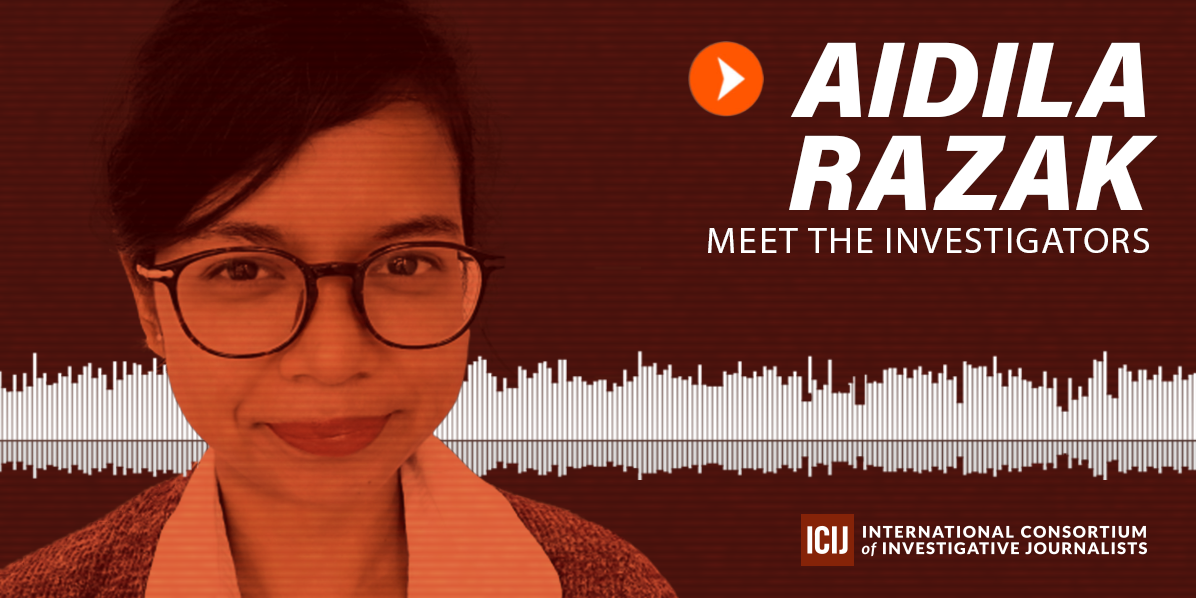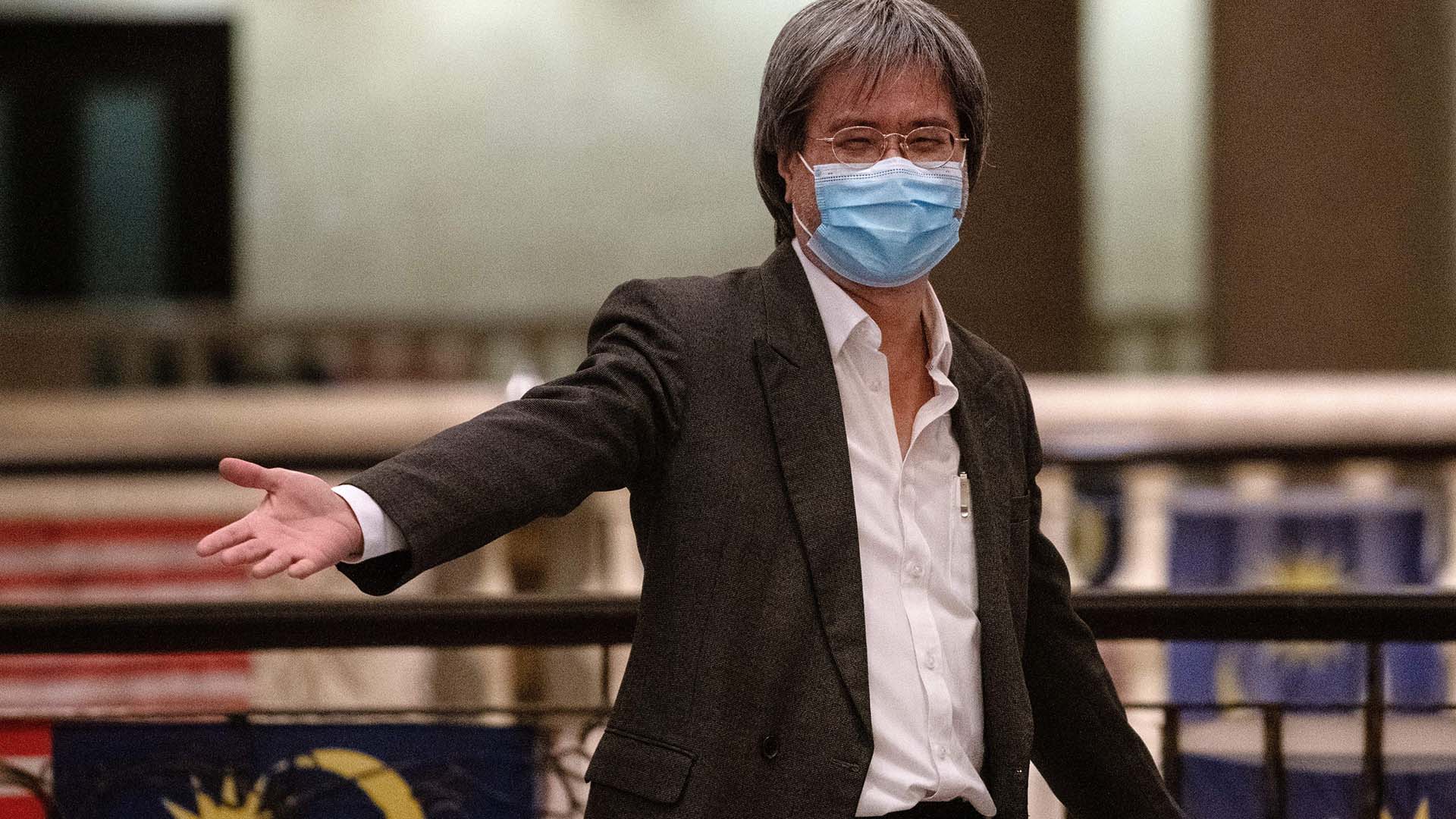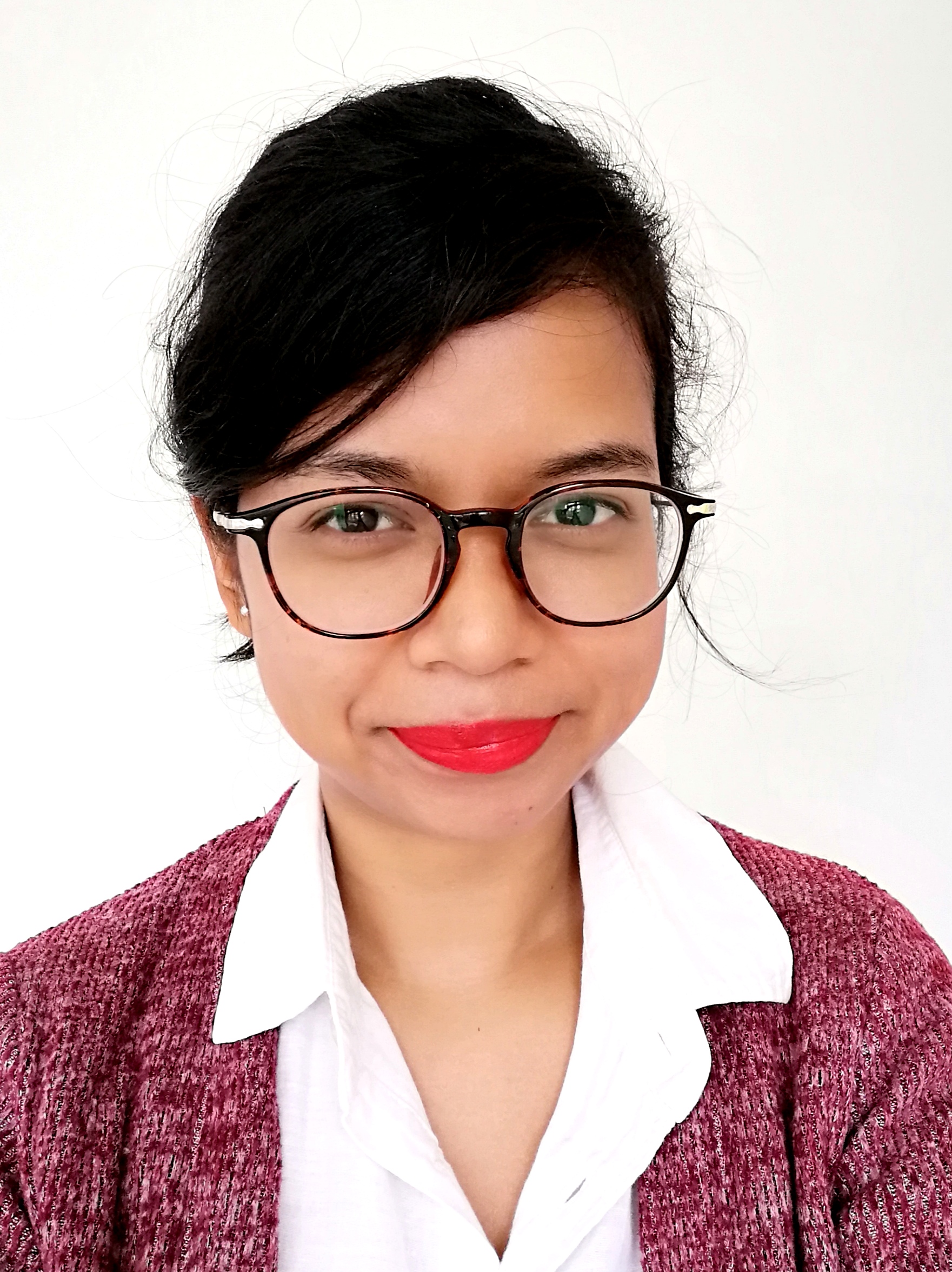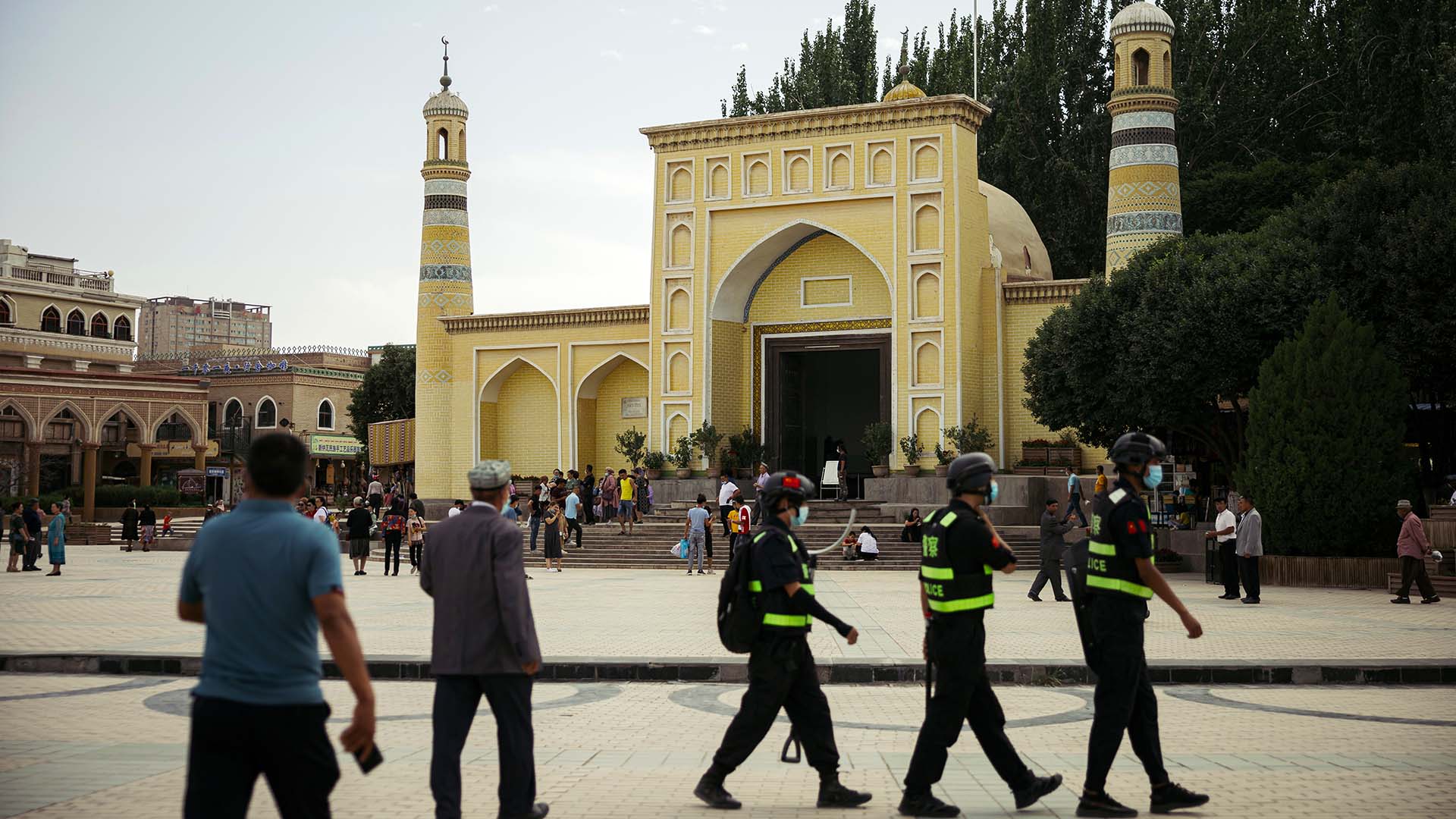Investigating Malaysia’s history, to understand the present
Aidila Razak explains how her team re-told a critical moment in their nation’s past that sparked conversations between generations.

The International Consortium of Investigative Journalists collaborates with hundreds of members across the world. Each of these journalists is among the best in his or her country and many have won national and global awards. Our monthly series, Meet the Investigators, highlights the work of these tireless journalists.
This month, Scilla Alecci speaks with editor Aidila Razak about press freedom in Malaysia, and the challenges of reporting amid the coronavirus. Aidila also talks about how reporters should look back more when investigating – so we can properly understand the present.
She explains in detail one story Malaysiakini created that interrogated what they knew about riots that happened some 50 years earlier. The result is an interactive story that takes readers through the history using eye-witness accounts and data.
Amy Wilson-Chapman: Hello! Welcome back to another Meet the Investigators podcast with ICIJ. I’m Amy, and this month we have a really interesting chat with our Malaysian member.
Aidila Razak: My name is Aidila Razak, I’m the special reports editor at Malaysiakini, I do any sort of investigative or special reports, in-depth reporting.
Amy: Aidila spoke from Kuala Lumpur with ICIJ reporter Scilla Alecci.
Scilla Alecci: Tell me a bit about yourself, and how, why did you decide to become a journalist?
Aidila: I have to really go back to this story of history class. When I was 14, we were learning about the Road to Independence – Malaysia’s independence – and there was a small part in the history book about the role of journalists. And I remember at the time just thinking, just how cool that was, that these people wrote things that made such significant change.
And I thought that, yeah, this is something I really wanted to do and I never really changed.
I always wanted to be a journalist and eventually became one.
Amy: Despite her grand ambitions, now is not the best time to be a reporter in Malaysia. In July, Aidila’s news organization, a partner of ICIJ, Malaysiakini, found itself in the headlines – fighting a government court case.
Aidila: It’s a very tricky time to talk about this, because just yesterday I was in court supporting my editor-in-chief who was in court for contempt, not because of something he wrote or did or whatever that we did, as his journalists.
But because of something readers left as comments. So it is a very tricky time for press freedom in Malaysia.
Amy: In June, Malaysiakini published a story about the court’s reopening after the country’s lockdown in response to the coronavirus.
Just as they would for any story, the news outlet let readers leave their comments.
It was a simple news report about the opening – but the Attorney General reacted fiercely when some readers posted comments criticizing the judiciary.
KiniTV Newscast: Attorney General Idrus Harun has filed an ex-parte application to initiate contempt of court proceedings against Malaysiakini… Idrus alleged that Malaysiakini had facilitated the publication of these comments which were “unwarranted and demeaning” attacks on the judiciary.
Amy: Malaysian law doesn’t explicitly require news outlets to moderate readers’ comments, but Malaysiakini’s editor was charged with contempt and brought to court.
Steven Gan risked imprisonment. Here’s Gan speaking with KiniTV at the time:
Steven Gan: This contempt-of-court case is so fast that we have to prepare for the worse…

Amy: It’s not the first time the Malaysian media has been under attack. In the ten years that Aidila has been a reporter, press freedom has had many ups and downs.
Aidila: Starting from, maybe in the 1980s, we started to have really heavy regulations on the press. The Printing Presses [and Publications] Act would require us to have licenses and things like that. And that really put a real chill on freedom of reporting, this massive censorship, even self-censorship, because of this. People were really afraid of losing their license and losing livelihoods.
And there were various times soon after the law was enacted that it was imposed and newspapers really lost their license and newsrooms have to shut down. So since then, it has been very much a very kind of muted type of journalism. So always finding a way to tell the story without being so overt, that they can catch you, or something like that.
Yeah, so that has been the case for Malaysian journalism since then, and I feel sometimes that yes there will be periods where we’ll be brave, and we think that we might be safer, and then we would try to push the envelope.
And then something happens and people get scared again and then there is a whole series of censorship again and that might take another decade to come back out.
Amy: Something, like the latest case against Malaysiakini, which Gan says will have a chilling effect – no matter the outcome.
Steven Gan: You know, whatever decision they’re gonna make – it will have a tremendous impact not just on Malaysiakini but also on media organizations, on millions of Malaysians who are users of social media.
Amy: Six weeks after the publication and Gan were charged, a panel of seven judges reserved its decision. In August 2020 judgment is still pending.
Scilla: Does it mean that now is a bad time for Malaysia’s press freedom?
Aidila: Yeah, it feels like that because, one by one, these small cases are coming up again – which we have not had for like 10 years.
When I first started about 10, 11 years ago, there were more consistent examples of prosecution – you would have, you would be held up at the police station over some small thing, or the other and then we wouldn’t have so much of that anymore.
Then, when the Pakatan Harapan government came in, there was not any of that at all. In the 22 months that I recall, and then now that we have this new/old government, it’s all coming back.
So, we’ve got a book that got banned. Journalists being investigated for reporting on the lockdowns. Things that you wouldn’t think would ever be there. It’s happening all over again
Amy: The current government has used the coronavirus health emergency as an excuse to limit access to information and tighten controls on journalists. It’s a situation several ICIJ partners have faced in the wake of the pandemic.
Aidila: We are unable to access lots of press conferences or events where we could actually get information, information is very limited.
And, yeah, I think it’s happening around the world, isn’t it that they are using COVID laws to clamp down on dissent or any sort of critical reporting?
Scilla: Since you started, have you personally experienced threats or any kind of issues with law enforcement because of your work?
Aidila: I think everyone, at least at Malaysiakini, accepts that we are being watched at some level. When I first joined, I was kind of reminded of that: “Yeah, so the special branch will have a file on you”, so you just kind have to accept that, and then maybe live your life in a certain way.
Yeah, it does kinda, I mean, I’m quite careful about what, what goes on in social media, for example, because I know it might come back somehow.
So it does make you live your life in a different way.
Scilla: Like, what for example? What are the things that you pay attention to?
Aidila: Some of them, some of them are quite silly, right? I don’t know maybe how I dress, or maybe going out to a bar or something like that, I would be quite careful about those things.
Scilla: Speaking about stories… What’s the investigation that you are most proud of?
Aidila: Last year was the 50th anniversary of this riot that happened in Malaysia. It happened on this date, May 13th, and it was an ethnic riot. And it was probably the biggest of its kind in Malaysia, and it had the most lasting impact because of that, lots of policy change and it resulted in having affirmative action, which caused kind of systemic racism and things like that.
So we were grappling over the consequences of these riots.
Amy: After Malaysia became independent in 1957, the hostility between the Chinese living in the cities and the poorer Malays in rural areas grew stronger. The Malays began to demand measures that would grant them rights and privileges over other groups.
On May 13, 1969, after a Chinese-led party performed well in a local election, tensions rose and the two ethnic groups clashed.

Aidila: People, from mostly the Malay community and the Chinese community, were just basically killing each other in the streets and a few hundred people died.
So it was really something that, that scarred the nation, the causes of it, have been heavily debated. Some people believe it was manufactured for political reasons because there was some political problems then, and then following from that riot there was a change of Prime Minister, things like that.
But, as a result of those riots, the relationships between these two communities have always been kind of very thorny. And also as a result of the riots, the policymakers believe that ‘okay, this is also because of economics, and class.” And because the Malay society, the Malay community, were underprivileged, even though there was considered indigenous. So we will, therefore, have this affirmative action siding with the Malay community, and this continues to this day and it has caused a lot of problems in Malaysia because the Malays are the majority, and this is basically state-sponsored discrimination.
Amy: The riots resulted in the creation of pro-Malay policies that still persist today. For many in Malaysia, the riots remain a painful memory.
Eyewitness interviewed by KiniTV (in Malay): “I was only 21 years old at the time…”
Aidila: We went through all the declassified documents and papers, lots of books and things like that. And talked to people who were alive at the time and who witnessed the riots and what had happened and put it in context, to understand what had happened, what happened after.
Eyewitness interviewed by KiniTV in Malay: “Imagine, that was my first time seeing a murder…”
Aidila: After we published that, lots of people told me … and even to this day occasionally people would be like, “Oh, I recognize your name, you’re the one who did this investigation,” and they would tell me that it helped them have a conversation with their parents about these things, which no one ever talked about before.
There was a document that was released by the government – like a white paper – immediately after the riots, but soon after that, it increasingly became something that was suppressed.
Even to this day, it is not even in the history books, even though it’s such an important incident in Malaysia. You are not allowed to talk about it in public, children don’t learn about in schools and often it is used by politicians to threaten other communities, saying that “if you don’t support this systemic racism, then it might happen that we might go to the streets and kill each other again.” So, it’s always a serious political bogeyman.
Amy: So Aidila and her team of reporters used a combination of eyewitness evidence, documents and data to understand what really happened during those riots.
The result? A multimedia investigation that readers can interact with – and see where things took place.
Aidila: The heart of the piece that we published was actually an interactive map, which tracked the movement of the riot and also how it grew in scale. It’s not data like numbers, as you know, but it’s actually, it’s qualitative data, and then geographical data.
So those things, we have to really match up, as well as the time. So, every time I find something in the books, that will kind of mention a place.
And then I will have to go back to the maps and see. Does this make sense?
Because KL [Kuala Lumpur] has changed since then. Lots of the map now does not match the map before, so we have to check that and then find an eyewitness and then see whether the timing was about right. Eyewitnesses don’t write down like “5pm” or whatever. They just remember “around dusk” or “I remember that the street lights were on,” so there is a lot of that kind of matching that happened.
Scilla: What was the most difficult part of this investigation? Was it obtaining documents, or talking to people… what was it?
Aidila: Corroboration was the most difficult, actually. When things are not discussed or published, there’s a lot of myths that happen around it.
So, corroboration was a huge problem, every time you found a document, and then we have to find someone who actually saw it, or at least could pinpoint the geography that we could check on our map, that it’s something that could happen, because we were actually trying to get to a blow by blow of what happened on that day.
Amy: Even after the story was published, Malaysiakini’s work wasn’t over. The team of reporters was on high alert, ready to respond to negative feedback and threats.
Aidila: Afterwards, the most difficult part was to just deal with the feedback and the backlash.
So, I talked about the good thing about people actually talking about it. But it was quite, quite difficult to deal with… like, people cannot accept certain things about what had happened.
We wanted to have a conversation between people who witnessed the riots and young people.
We were going to host this roundtable discussion about it – and there were threats of right wing groups wanting to kind of storm the place and things like that.
A colleague who worked on the project had violent threats sent to her so she had to lodge a police report. It kind of triggered a lot of negative backlash, as well.
We were told not to host that forum by the police, saying that it could be seditious, and therefore action could be taken against us. But we decided to go ahead anyway, and police actually came around to cordon the area in case the right-wing group came, but they never came.
So we had to get lawyers on stand-by in case I got arrested.
Scilla: What would they arrest you for? I mean, what would be the charge in that case?
Aidila: Causing public unrest.
Scilla: Just because you talked about an old unrest.
Aidila: Yes, exactly.
Scilla: Have you learned anything from this experience?
Aidila: One thing I really learned from this experience is that it seems obvious that everything needs to be double-, triple-checked, four times, or whatever, but even when we did that, there were things that we didn’t really anticipate.
We checked the facts, the facts are correct. But you don’t anticipate the reactions to the story. This is one thing that I didn’t really do that I wish we did better.
That we anticipate not just the reactions history, but also reactions to certain words that we used. Headlines, pictures like, everything. It has to be a lot more careful than just the investigation.
Scilla: Going forward, is that something that you will do, all the time?
Aidila: Yes, so now we have checks, we test on our stories. We have like a test audience.
Scilla: How do you do that, tell me?
Aidila: Like… we don’t hire people to read it, or anything. We test with the newsroom, then we test with our families, and then we get them to test with their friends, because, obviously sometimes you’re very close to the project. And you think, yeah, it’s fine, there’s nothing wrong with it, and then you release it to the world, and apparently, there is a lot wrong with it and you didn’t see it.
I always believe in kind of audience engagement even though that also opens the floodgates to a lot of harassment. But I just feel like it’s so important to listen because, yes, sometimes we’re just really stuck in this bubble of the newsroom, or of journalists. You’re not aware of how it translates or what other issues out there that you missed.
Scilla: So now that you’re an editor, what do you tell your reporters? Is there anything that you try to teach them or?
Aidila: Some of the things that I learned from my editors, I try to pass down, but one of the things that’s crucial, I feel, is to tell the story, as well as whole as possible.
I think now because we are always rushing or, I don’t know, because it’s online everything has to be rushed out and things. There’s a tendency to just try to get it out, even though you know the story is not there yet.
I would always try to say that, “OK, it needs more time. Take your time with it. Do re-writes. Look for more. Ask more questions.”
Scilla: Another thing we’re curious about is what our partners enjoy reading. So recently have you read or seen any piece of journalism that you really enjoyed?
Aidila: I just finished reading this book. And it’s not really, I don’t know whether it’s considered journalism, but yeah, it’s called “Things we didn’t talk about when I was a girl.”
It’s about this woman who is kind of investigating her own rape in a way. She was raped as a Teenager. And then she goes back and talks to her rapist and she’s investigating it.
I found it fascinating the way she captures the story and her experience with it as well.
It’s something that stuck with me. I just recently finished it, and I feel like, if there’s a way that we could bring that into journalism, or investigative storytelling in a way, that would be brilliant.
Amy: That’s just one idea Aidila has for improving investigative journalism. The ambitious reporter also hopes we can learn to investigate historic facts – and weave it into our reporting.
Aidila: I had a friend who recently published something about how Jakarta came to be, and then she is kind of into this journalism and history intersections. So, she calls it like “History Telling.”
And I think that’s brilliant because it’s great that we can talk about what’s happening now, but there are lots of things that happened before that were never investigated but we have a chance to do now.
Scilla: Yeah, absolutely.
That’s it from this month’s episode of Meet the Investigators, I really hope you enjoyed it. This episode was produced by my colleague, Scilla Alecci and myself, Amy Wilson-Chapman.
As always, please send us your feedback at social@icij.org, and don’t forget to tell your friends. If you can, please share the episode on social media and use the hashtag #MeetTheInvestigators to let people know.
Thanks for listening, until next month!


